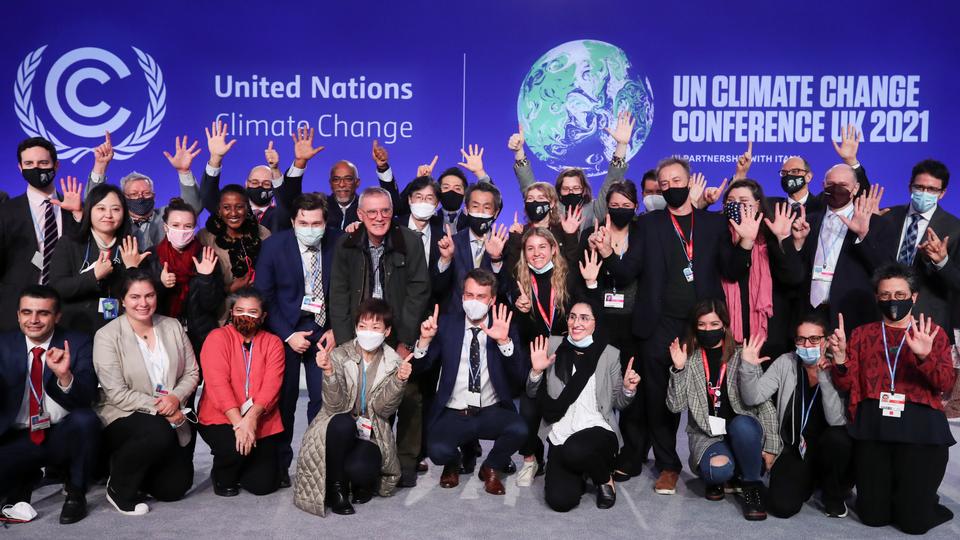Several countries, including small island states, say they are deeply disappointed by the move to “phase down” rather than “phase out” coal power, the single biggest source of greenhouse gas emissions.

Government negotiators from nearly 200 countries have adopted a new deal on climate action after a last-minute intervention by India to water down the language on cutting emissions from coal.
As the final deal was clinched on Saturday at the COP26 summit in Glasgow, a tearful Sharma said “I apologise for the way this process has unfolded, I am deeply sorry” before banging his gavel.
UN Secretary General Antonio Guterres, reacting to the outcome, welcomed the deal, but stressed it was “not enough”.
“We are still knocking on the door of climate catastrophe,” he added.
Delegates entered the talks charged with keeping the 2015 Paris Agreement goal of limiting temperature rises to 1.5 – 2 degrees celsius within reach.
They were also tasked with finding the funding for nations most at risk of climate-related droughts, floods and storms supercharged by rising seas.
Observers said the agreement fell far short of what is needed to avert dangerous warming and help countries adapt or recoup damages from the disasters already unfurling globally.
READ MORE: COP26 climate talks run overtime in final push to strike a global deal
Survival
The final text has urged nations to accelerate efforts to “phase down” unfiltered coal and “phase out” inefficient fossil fuel subsidies.
Large emitters China and India have opposed the inclusion of language tackling polluting fuels. The final text was significantly more nuanced than earlier drafts, but less strident in its demands.
The deal also called on all countries to accelerate their emissions cuts by submitting new national plans by 2022, three years earlier than agreed in Paris.
But after resistance from rich nations led by the United States and EU, the text omitted any reference to a specific finance facility for the loss and damage climate change has already caused in the developing world.
It instead only promised future “dialogue” on the subject.
Yet developing nations argue it is unfair for summit organisers to produce an unbalanced agreement heavily weighted towards “mitigation”. Instead, economies should be focusing on ditching fossil fuels and reaching net-zero emissions altogether.
Countries attending the summit wanted specific instructions on how to meet the bill of decarbonising, while also adapting to natural disasters supercharged by global warming.
READ MORE:
COP26: Kicking the can down the road?
Source: TRTWorld and agencies
New global climate deal struck at COP26 with compromise on coal
Source: News Achor Trending
0 Comments